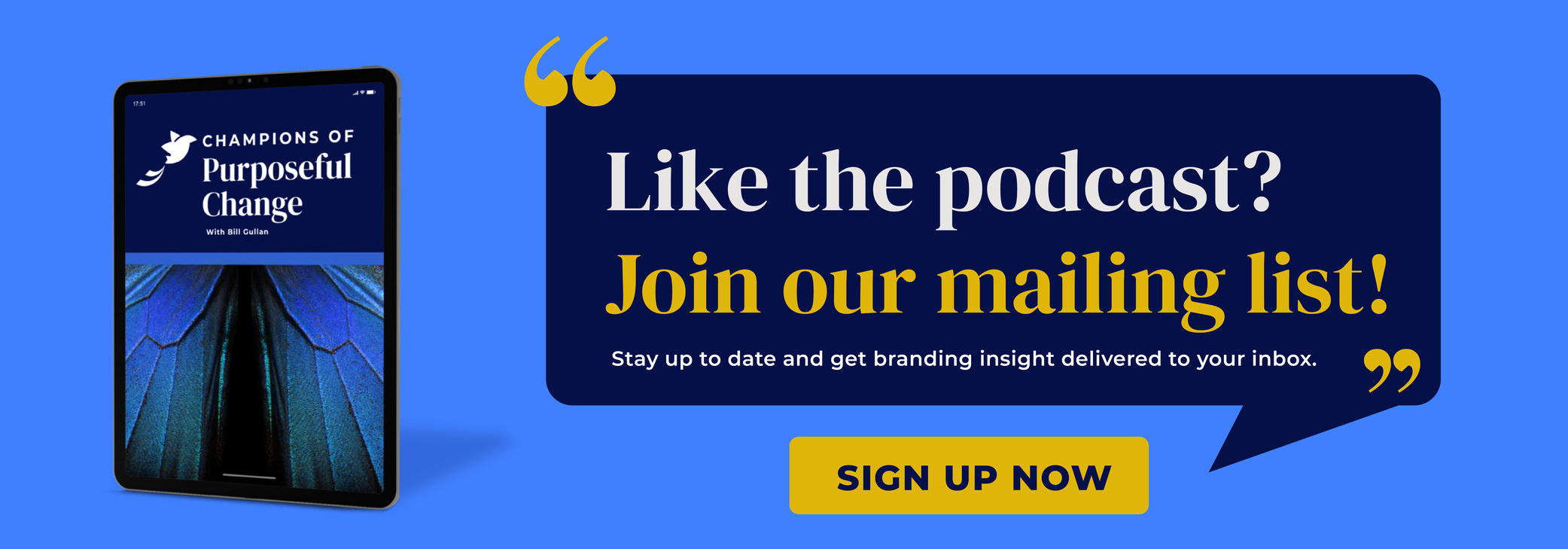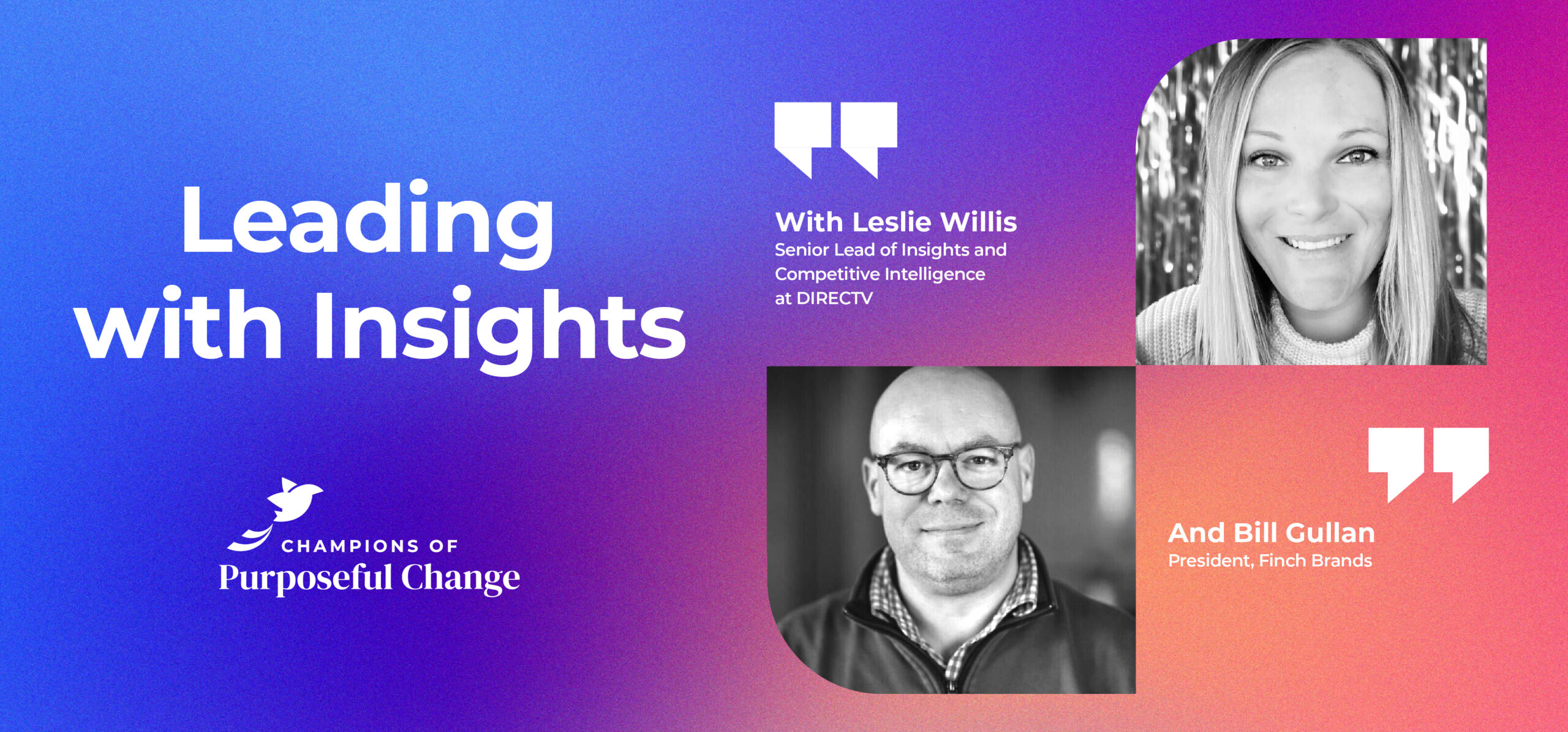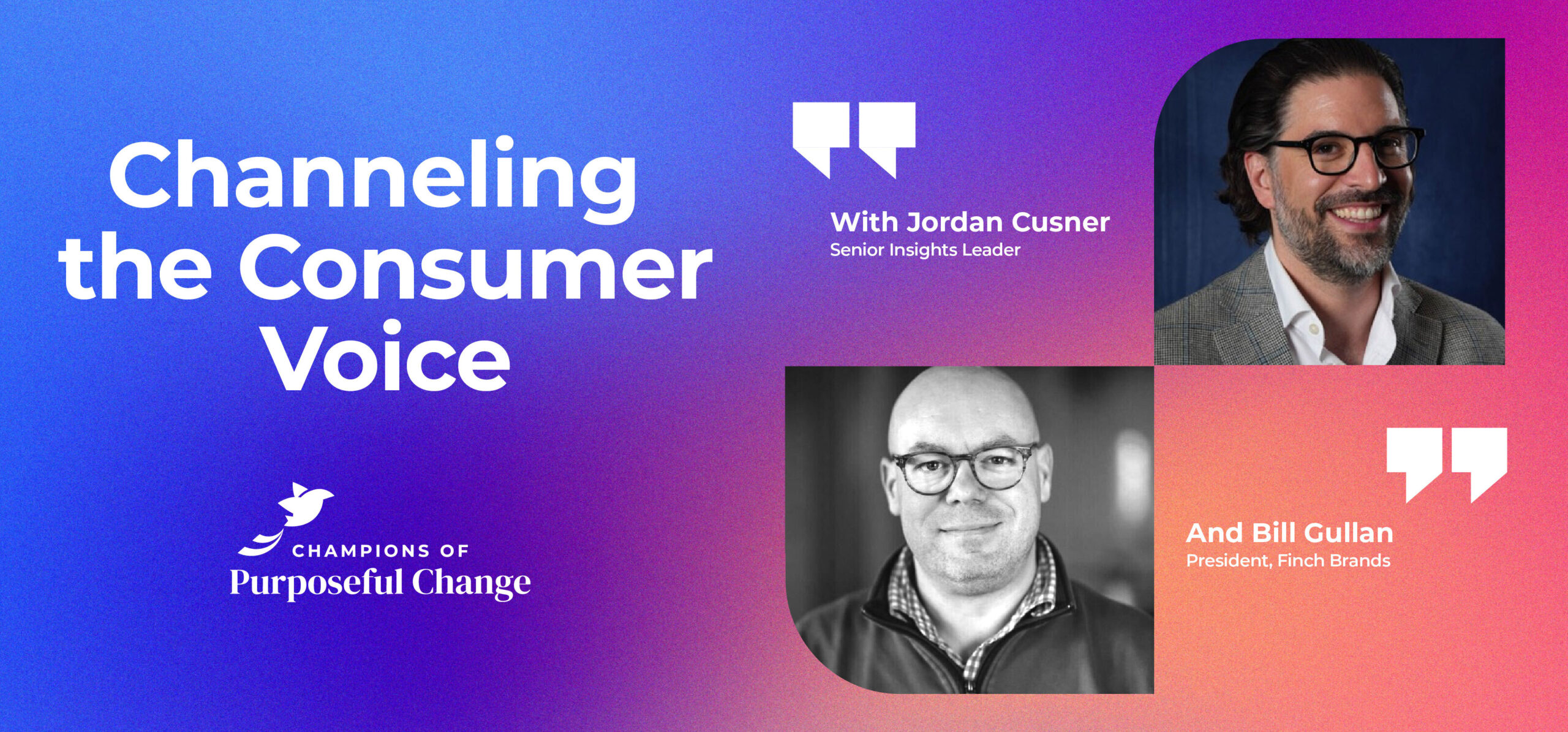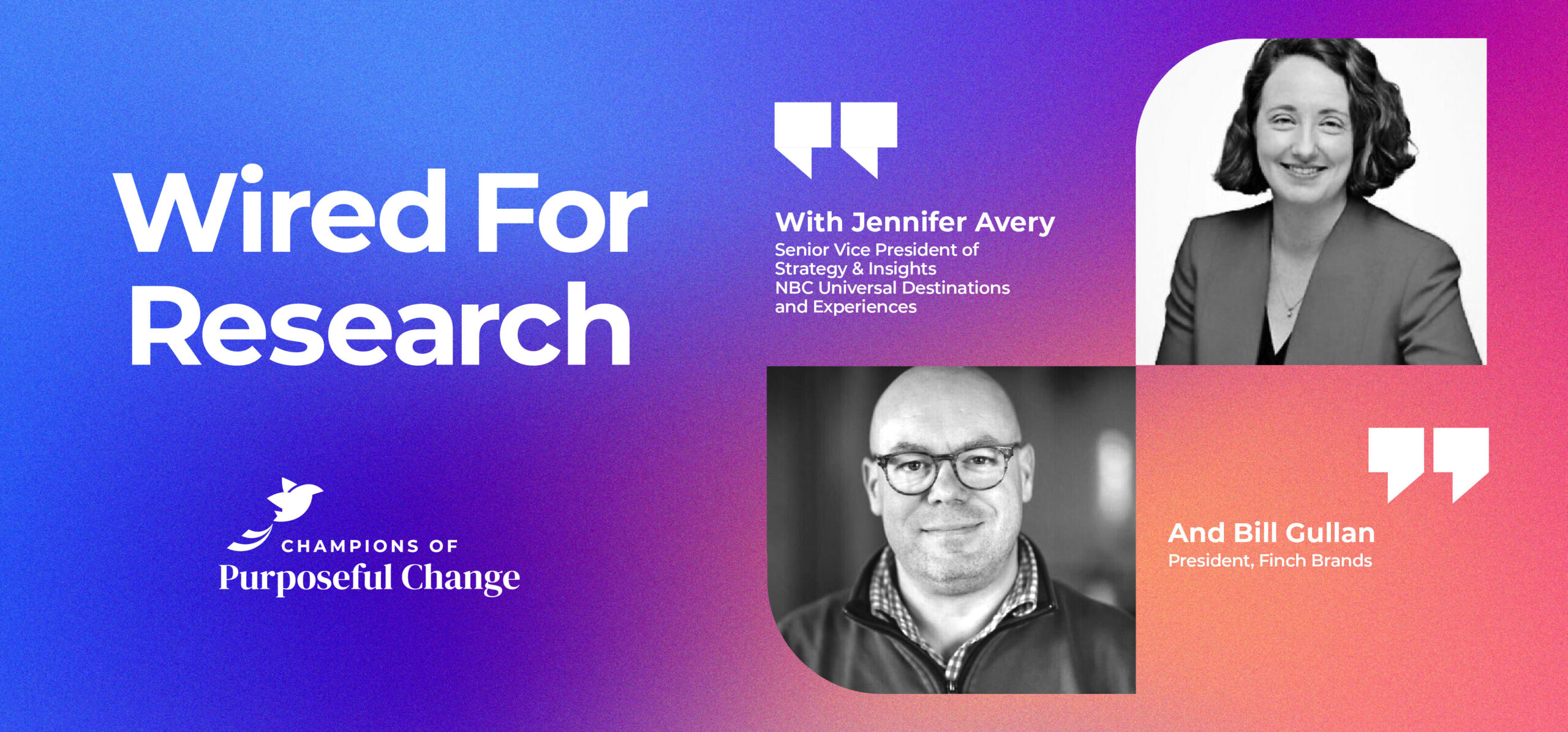One Big Idea: Early Stage Branding
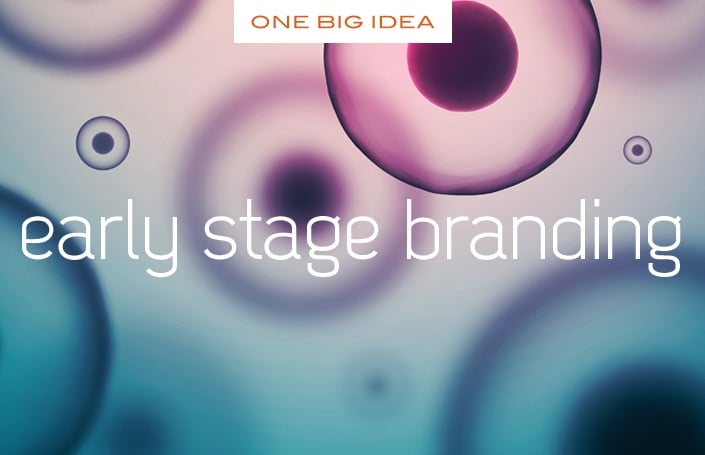
One Big Idea: Early Stage Branding
When starting a business, there are many things on which entrepreneurs must focus – everything from developing prototypes to raising capital. However, one aspect every business owner or founders need to address, especially early on, is the brand. In this week’s One Big Idea, Bill explains the role of brand in early stage organizations and how early thinking about brand helps prepare companies for success. If you like our podcast, please subscribe and leave us a rating!
Podcast: Download Subscribe: iTunes | RSSTranscription
Bill Gullan: Greetings one and all, this is Real-World Branding. I’m Bill Gullan, President of Finch Brands, a premier boutique branding agency and this is One Big Idea. Today’s topic we’ve entitled Early Stage Branding. A couple of thoughts about this. First of all, we’ve recently recorded over the last couple of weeks a couple of really, really interesting podcast episodes, interviews with a diverse group of brand and business builders, but it seems like recently some of the folks we’ve been and we’ll be featuring are those who really have the entrepreneurial spirit and often have worked with early stage companies – making them bigger, exiting in a favorable positive way, as well as nurturing entrepreneurs and the overall entrepreneurial eco system.
One of the interesting topics that each of these podcasts have gone into is for entrepreneurs and those who are working on early stage business concepts, how do you think about branding. Obviously with large organizations with multiple touch points, with many, many different customers and prospects the notion of brand development and brand management is a fairly well understood discipline. We’ve spoken about it at great length on this podcast.
The question though, ultimately, becomes for those who are in a mode of conserving capital, for those who are at a stage where they may be building their product and those twists and turns of the meetings they’re having or the epiphanies that they have, the studies they’re doing, are helping shape the way products are built and constructed. For those who are at that early juncture, how should they think about branding?
The topic today is: what do you need to get done early, and how you ought to think about it if you’re an entrepreneur who’s working on a venture, or you’re a little way in but haven’t hit your stride, you’re still in the planning mode, how should you think about the brand? What do you need to get done versus what perhaps comes later? First of all, there are different answers to this question but my take is as follows. We’ve outlined on this podcast in terms of first principles what branding really means.
Branding is a much bigger topic than just look and feel, than identity or colors or sales materials. Branding is ultimately about purpose, it’s about promise, and it’s about differentiation. If entrepreneurial ventures start with a core sense of why, with a core belief of the righteousness of a business cause, whether it’s to do something different, to do this better, or ‘why should we as a population have to deal with X, Y, and Z, and my company is going to make this better.’ That sort of endeavor, intellectually and otherwise, is a core element of what branding is. It’s getting to the why, it’s establishing the purpose, it’s organizing the passion in pursuit of a business goal.
So as it relates to first principles, in terms of brand, it is essential to get that done early or to arrive at that entrepreneurial activity and energy with a clear sense of what that is. The first principles of branding are important to get done or have early, finding the why.
More tactically, things that are important to think through and get right or as close to right as possible in the early stages of a venture, let’s think about identity. A good name. Our last One Big Idea was about some ways to think about the naming process. The potential of a strong brand name in terms of conveying energy, of demonstrating and expressing a position in the marketplace, a differentiable position, as well as beginning the process of getting your prospects and your customers to feel something. To balance that emotional and rational piece is important. Entrepreneurs should not miss the opportunity to use the name as part of that positioning arsenal.
It’s important to think through, maybe not to spend months on, not to spend thousands of dollars on, but to think through naming with a seriousness of purpose, as well as the requisite creativity. It’s also important obviously because you don’t want to have to go back and redo this later. It’s important that you do due diligence when it comes to naming in terms of legal availability, in terms of linguistic appropriateness, in terms of a domain name that is conducive to your sales and marketing program. You really ought to do well when it comes to naming pretty early on.
The pitch, the simple distillation of the why into the right kind of boiler plate copy, positioning statement, tagline perhaps, that kind of platform for pitching, for sales and marketing, is something to spend some time on early and to definitely pressure test with those around you with the prospective customers, with those on whom you seek to have influence, certainly your investor partners if applicable, your business partners. Getting the bare bones of the pitch right early is important.
Also we talk a lot about research and obviously we at Finch do a lot of custom and as well as picked out a panel driven market research. It is important to pressure test your message, as noted, but at this early stage our perspective is, it’s perhaps most important to do this by doing it. The best way to start doing something is to start doing something sometimes. There is the opportunity to be paralyzed by study, paralysis by analysis as we call it, and to fail to launch in a way until things are absolutely perfect, which they ultimately never will be.
When it comes to research there are low cost market research tools that entrepreneurs can harness, but in some ways I think bouncing off ideas both for business concepts but also for pitch items, bouncing them off of prospects, bouncing them off of thought leaders, investors, and others is probably all you need in the early stages when you are conserving capital and thinking through what you need to get done early on the branding front.
The overall operating principles in the early stages of business development and bringing the idea, the sense of why, the purpose into an actual business plan and fully articulated multifunction business execution – you want to save dollars, you want to control your burn rate, you want to conserve capital wherever possible. This does not mean depriving yourself of the oxygen required to enable the business to reach the next phase, but it does mean being very, very smart about the investment you make in terms of external partners. One of those investments, sounds strange for me to say is, is you certainly want to conserve capital when it comes to branding and marketing in the early stages.
Secondly, many entrepreneurs have a perfectionistic, if that’s a word, impulse. You really need in the early days to apply that impulse elsewhere. You are not going to get marketing right, at least not 100% right, from day one. You are going to discover. You are going to perfect what you do based upon market fact. While you do want to get ahead of that, in terms of again bouncing ideas, pitch items, and marketing pieces and ideas off of those whose input can help you steer, you definitely want to make sure that you are not caught in an endless loop of analysis and something that deprives you from getting to market and from learning from those early successes, and failures too. Obviously time must be spent when it comes to crafting the right value proposition, the right message, and the right suite of marketing tactics and techniques, but not so much so that you delay the learning and go-to-market process.
There you have it this week, importantly, and I guess the One Big Idea for this week is it’s important to apply the right level of thinking and resources to a couple of key things early on in the entrepreneurial journey, but, it is not essential that you go through the depth of analysis, thinking, and resource allocation that might be required when you are at a later juncture in terms of the business that you are striving and working so hard to build. That’s One Big Idea, Early Stage Branding. Bill Gullan here wishing you all the best as we sign off from the Cradle of Liberty.
